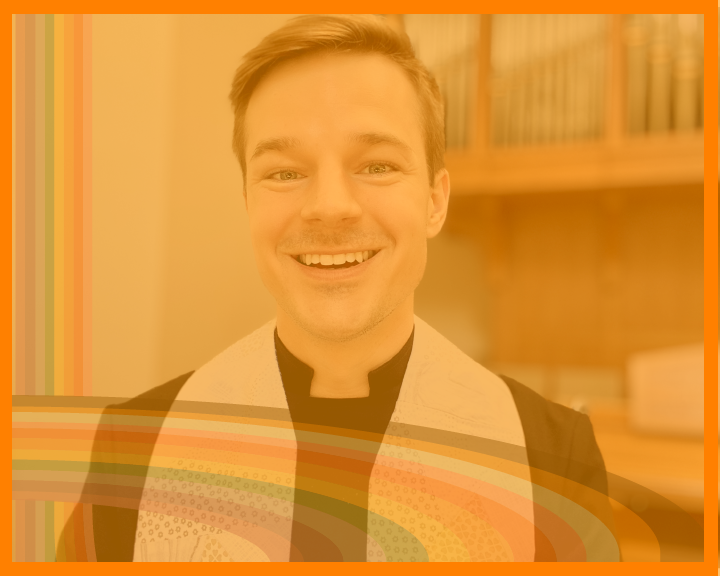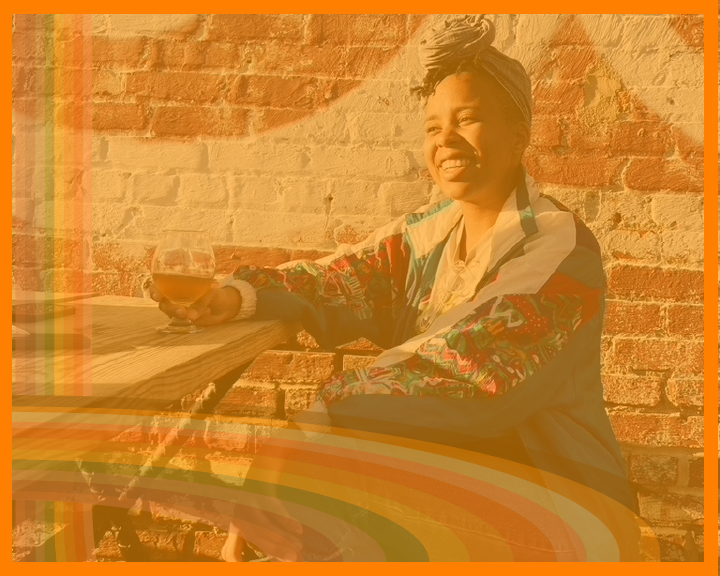I grew up in a fundamentalist evangelical church and we talked a lot about discipleship. We were to go out and make disciples of all people. We were to be good disciples.
And what did a good disciple look like? A good disciple told lots of people about their faith and tried to get them to convert. A good disciple studied their Bible a lot and prayed a lot. A good disciple was active in their church; serving, giving money, and attending every Sunday. A good disciple attended a small group of some kind, had people they were accountable to. A good disciple did their best to keep their bodies and minds pure.
I spent a lot of time trying to be a good disciple and often feeling like I was failing. I was extroverted and so telling people about my faith was really hard. I definitely served in my church a lot but I didn’t have a lot of money to give and always felt guilty for not wanting to give it. I felt weird being accountable to others because it felt too vulnerable. Not to mention my growing realization that I was queer and trans (even if I didn’t have that kind of language for it).
I spent a lot of time trying to be a good disciple and often feeling like I was failing.
But these ideas of discipleship were all about me and God. At the most it extended to me and the church. Imagine my surprise when, after leaving evangelicalism, I realized there is a whole lot more to discipleship!
Maybe you, like me, grew up in an evangelical church with these notions of discipleship. Or maybe you grew up in a more mainline denomination that talked about social justice more often. Or maybe you grew up Catholic and had a different set of expectations.
No matter what tradition (or no tradition) you were raised in, revisiting the Gospel of Mark with fresh eyes makes a huge difference in how we understand the ministry of Jesus and what it means to be a disciple.
The Gospel of Mark is all about discipleship. It’s a call to action, a call to get involved, a call to bring about the Kingdom of God right here, right now. In every story the writer of Mark is telling their audience what it means to be a disciple.
The Gospel of Mark is all about discipleship. It’s a call to action, a call to get involved, a call to bring about the Kingdom of God right here, right now.
And while a couple of the things, on the surface, seem like the kind of things I was taught in my church, a deeper dive tells another story.
Take chapter ten. It’s a series of small scenes, jumping from one to another almost without time to breathe in between. On a quick read we get a conversation about divorce, a lesson on children, a story about wealth, a teaching about death, a conversation about power and prestige from Jesus’s followers, and then a story of healing. Phew! That’s a lot to pack in to one chapter!
In my church growing up, I would have been taught about the stories like this: divorce is bad (and so are gay people), be as innocent as children, be willing to give up your money (or, alternately, no one is perfect), Jesus is God so he knew he was going to die, don’t be a power grabber, and God can heal you if you have enough faith.
Does any of that sound familiar?
Now, whole commentaries have been written on each of those stories, but if we keep in mind that Mark is about discipleship, each of these stories takes on a different hue. Each instance is a moment where Jesus is inviting people into the way of discipleship.
This chapter starts with the conversation about divorce and honestly, it’s the most tricky to parse. Some commentaries talk about how Jesus provides more care for women than traditional law, allowing them, also to declare a divorce. Other commentaries state that this was an attempt to trick Jesus into talking about Herod and his marital relations, the same type of critique that got John the Baptist executed.
It can feel like this is an anti-queer text eliminating the possibility of queer relationships, but I see this text as centering, again, the least of these. It’s about critiquing power structures that allow men to rule over women, it’s about critiquing political structures that allow for the taking of women and for a ruling class that plays by different rules.
Who are those being ruled over today? Who are the people without agency over their own bodies and relationships? How are laws set up that privilege certain types of relationships while excluding others? These are the questions we’re being invited to sit with and to answer with our own discipleship.
Who are those being ruled over today? Who are the people without agency over their own bodies and relationships? How are laws set up that privilege certain types of relationships while excluding others?
In the episode with the children, Jesus is centering the needs and feelings of a group of people who were often overlooked, who had no rights, who wouldn’t have been considered important. The call to radical discipleship is to center those on the margins.
Who are those on the margins today? Transgender children, Black and Latinx transgender people, particularly transgender women, and so many others who are kept out of decision making and for whom others’ decisions do damage to their lives.
In the encounter with the rich young man we hear that he’s been devoutly religious, he’s kept the commandments, he’s honored his family. He’s done all of the right things. Jesus invites him into deeper participation; to give up his security and join the political movement for liberation. And the man goes away sad because he’s unwilling to go that far. Those on the margins already have nothing to lose, this man was being invited to stand with them in solidarity and was unable to do it.
Jesus invites him into deeper participation; to give up his security and join the political movement for liberation. And the man goes away sad because he’s unwilling to go that far.
Where are the places you’re being invited to go further? Who are you being invited to be in solidarity with? What kind of discomfort might that cause in you? What security might you be asked to abandon.
Jesus tells his followers that they’re heading toward Jerusalem and he’s going to be executed there. He knows this not because he has some kind of fortune telling ability, but because that’s what happens when you go to the center of power and defy it. He’s willing to walk the road to that center of power even knowing what it will cost him.
Where are the centers of power in our world? In your neighborhood or city? Where are you being called to stand up to that power? What are you willing to risk?
And in the very next sentences we hear Jesus’s followers asking for future glory, for power, for seats of honor. We realize they don’t fully understand the mission. They’re still thinking in terms of the way it’s always been done. They’ve missed the point of Jesus’s invitation to discipleship.
Where are we missing the point? Where are the places we’re unwilling to consider a new way of being? Where are we choosing our own comfort, our own prestige, our own agendas over the work of solidarity and justice?
Then, finally in this chapter, we have the story Bartimaeus, a man who is blind. Because of his disability he’s told to be quiet, told that he’s not worth the time and attention of this prophet. Being sick meant you were excluded from civic life. “The system subjects the physically ailing to a double oppression: not only are they second class citizens in Israel, but they must make special payment as well.” (Binding the Strongman pg 153) All of the healing stories aren’t necessarily about the healing, they are about the restoration of the healed person back into community. It’s about making sure they are included again. Reading this story with a disability lens we would say it’s the world that needs to change: it’s not the person who needs to be healed, it’s the world that needs to adapt.
All of the healing stories aren’t necessarily about the healing, they are about the restoration of the healed person back into community. It’s about making sure they are included again.
Whose voices are we not listening to? What barriers are we putting up that keep people out of our communities? What are we refusing to change that makes those with disabilities adapt to our structures instead of the other way around?
The best of queer and trans community has always been about centering the most marginalized, taking care of the most vulnerable, taking the fight to the centers of power, eschewing respectability, and making community where there was no community. From fighting back against police brutality at Stonewall, to caring for those with AIDS, to marching on the White House for better funding, to start up health clinics to meet our own health needs (that were being ignored by larger systems), to our continued fights for access to safety and protection and the ability to have agency over our own bodies, we know what it means to be in community and look out for one another.
Being queer and trans and especially being queer and trans Christians, we are invited into this space of radical discipleship. We are invited into a community that goes beyond traditional notions of family and structure and instead think outside the barriers, queering the very foundation we all stand on.
The invitation remains the same today, to go more deeply into a politics and a practice that creates families and systems and structures that are more just.
Will you answer this call to discipleship?
Shannon TL Kearns is a transgender man who believes in the transformative power of story. As an ordained priest, a playwright, a theologian, and a writer all of his work revolves around making meaning through story. He’s the co-founder of QueerTheology.com and will soon publish with Eerdmaan’s books. He was the founder and Artistic Director of Uprising Theatre Company in Minneapolis. Shannon is a recipient of the Playwrights’ Center Jerome Fellowship in 20/21 and he was a Lambda Literary Fellow for 2019 and a Finnovation Fellow for 2019/2020. He is a sought after speaker on transgender issues and religion as well as a skilled facilitator of a variety of workshops. His work with Brian G. Murphy at QueerTheology.com has reached more than a million people all over the world through videos, articles, and online courses and community. Shannon’s plays include Body+Blood, in a stand of dying trees, Line of Sight, Twisted Deaths, The Resistance of My Skin, and Who Has Eyes To See. He’s also the writer of three television pilots: Transformed, Freedom, Kansas, and Family Unit



Unbound Social